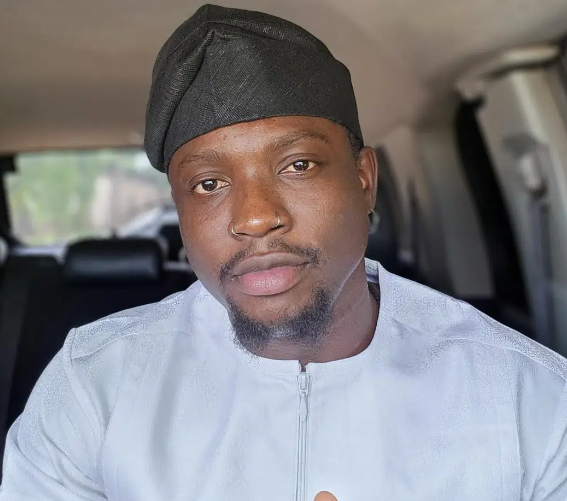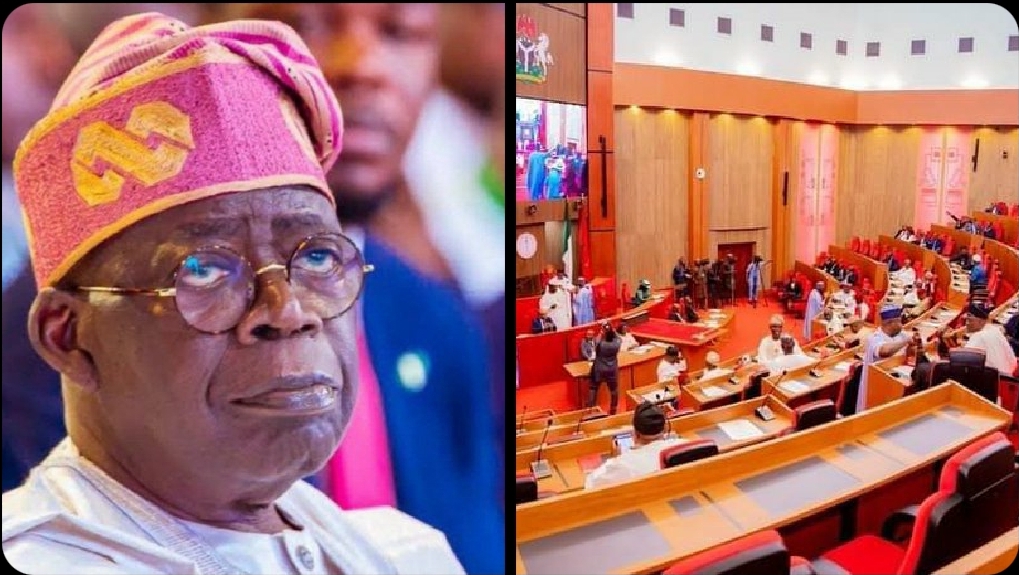
Chaos at the Bank: EFCC Allegedly Brands VeryDarkMan a Bandit, Sparks Nationwide Outrage

In a dramatic twist to an already simmering controversy, popular social media figure Martins Vincent Otse, widely known as VeryDarkMan, has reportedly been branded a "bandit" by operatives of the Economic and Financial Crimes Commission (EFCC) during a troubling arrest that has ignited public outrage across the country. The incident, which occurred on May 2, 2025, has now raised significant concerns about the conduct of the EFCC and the treatment of Nigerian citizens, especially those who dare to speak out on public platforms.
The claims surfaced after Deji Adeyanju, the legal representative for VeryDarkMan, released an explosive statement via his law firm’s official account on X (formerly Twitter), detailing a shocking chain of events. According to the statement, Otse, his mother Mrs. Blessing Otse, and his associate Mr. Steven Avuara had gone to the Guaranty Trust Bank (GTBank) branch at Garki, Area 3 in Abuja, to question the bank regarding what they described as “incessant deductions” from Mrs. Otse’s account. What was expected to be a routine banking inquiry quickly devolved into chaos and alleged violence.
After completing their inquiry and attempting to leave, the trio found themselves inexplicably trapped inside the bank’s security door for over five minutes, a move that now appears less coincidental and more like a prelude to a staged confrontation. When they eventually stepped outside, they were met with an ambush — armed men in black uniforms accosted them, blindfolded them, and allegedly began to beat them on the spot. What’s more chilling is the assertion that these men, who turned out to be EFCC officers, labeled Otse and Avuara “bandits” and threatened to shoot them, all within earshot of the visibly distressed Mrs. Otse.
The statement from Adeyanju’s law firm, titled “Preliminary Statement on the Arrest of Mr. Martins Vincent Otse (aka Very Dark Black Man) and Mr. Steven Avuara (aka C-Pack) by Officers of the Economic and Financial Crimes Commission,” is being widely shared and dissected on social media. The narrative not only paints a damning picture of law enforcement but also hints at an emerging trend of using excessive force and public humiliation tactics against vocal critics of the system.
Legal representatives Marvin Omorogbe and Steven Eze, dispatched by Adeyanju’s firm, visited the EFCC headquarters shortly after learning of the arrests. While they confirmed that both Otse and Avuara were in custody under the Commission’s Special Duty Committee (SDC) Unit 4, they were denied access to VeryDarkMan, who reportedly refused to see anyone — a move interpreted by many as a sign of fear, trauma, or strategic silence.
The lawyers did, however, manage to speak with Avuara, who corroborated much of the timeline and offered further details of the arrest. Shockingly, attempts to ascertain the charges against Avuara led nowhere, as EFCC officials allegedly refused to clarify why he was being detained. Instead, they presented an arrest warrant for Otse, supposedly issued by Magistrate Njideka Iloanya-Duru of the Wuse Zone 2 court, based on allegations of cyber stalking.
Even more concerning was what followed: EFCC officials reportedly attempted to interrogate Avuara without informing him of any specific allegations, a clear violation of his constitutional right to know the reasons for his arrest. The legal team, in protest, exited the interrogation room, refusing to legitimize what they described as a flawed and unlawful process.
As news of the incident broke online, public reactions erupted in a mix of disbelief, anger, and calls for accountability. Many Nigerians see the incident not just as a personal attack on a controversial internet personality, but as part of a broader and troubling pattern of institutional abuse. Social media platforms are now flooded with hashtags like #JusticeForVDM and #EFCCBrutality, as netizens demand transparency and reform.
Critics argue that the EFCC’s alleged conduct — from labeling civilians as bandits to physically assaulting them in broad daylight — dangerously mirrors the kind of lawless behavior the agency was created to combat. Others are questioning the timing and motives behind the arrest, noting that VeryDarkMan has been an outspoken figure on corruption, online scams, and political misdeeds, making him a potential target for silencing.
GTBank, which has now found itself at the center of this unfolding drama, has yet to release an official statement. However, the bank’s name trended alongside the EFCC throughout the day, with many blaming it for allegedly aiding or enabling the ambush by delaying the trio within its premises. Some even accused the bank of collaborating with authorities to target critics and customers who challenge its financial practices — claims that, while unverified, are gaining traction fast.
Meanwhile, legal experts are weighing in on the matter. Human rights lawyer Aisha Bello described the incident as “a disgraceful abuse of power” and warned that the EFCC must immediately issue a public clarification or risk further eroding public trust. “You cannot just label a citizen a bandit without evidence, blindfold and beat them, and expect there to be no consequences,” she said in a televised interview.
The EFCC has so far remained silent, refusing to confirm or deny the allegations. Their silence is only deepening the mystery and fueling speculation about a possible cover-up or internal misconduct. Calls are growing for an independent investigation, with some suggesting the involvement of the National Human Rights Commission (NHRC) or even international human rights watchdogs.
As the dust refuses to settle, one thing is clear: this saga has moved beyond the personal troubles of an internet celebrity. It has sparked a national conversation about how financial institutions, law enforcement agencies, and the justice system interact with — and sometimes weaponize themselves against — everyday Nigerians. Whether the EFCC will emerge from this scandal with its credibility intact remains to be seen. For now, the pressure is on, and the public is watching.


